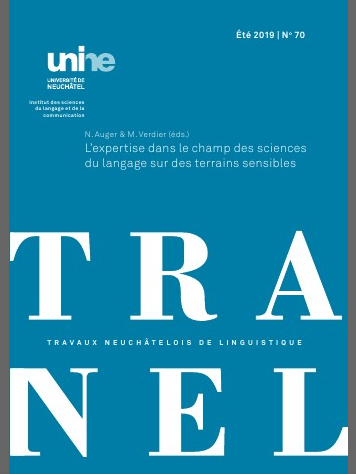Expertise d'usage versus dévalorisation de soi : vingt informateurs aveugles face à une enquête sur le toucher
DOI :
https://doi.org/10.26034/tranel.2019.2914Résumé
The main goal of the DVPH (Verbal Description and Haptic Perception) survey was to measure the relative frequency of tactile references in the discourse of 30 visually impaired people: ten sighted temporarily blindfolded, ten late blind and ten congenitally blind persons. It demonstrates that blind interviewees are expert users when they explore with their hands and describe four little everyday objects. The present paper shows that this corpus reveals another meaning if the analysis takes into account the modal markers that people emit during the task and the evaluative utterances they enunciate at the end of each sequence and when concluding the interview. To explain this, we combine two approaches: the categories of normal vs. stigmatised people defined by Goffmann (1963) and the dialectic between negative and positive sociotypes that Bres (1993) modalised. This seemingly factual research topic sheds new light on the personal and social identity of the interviewees.


